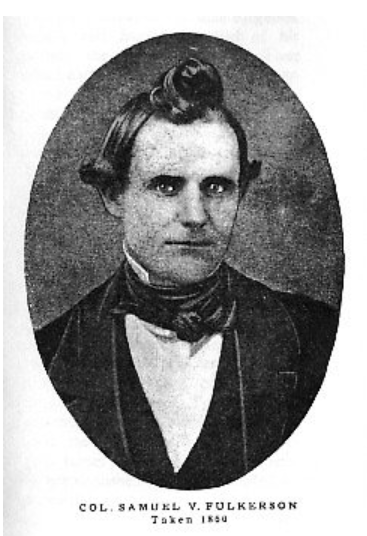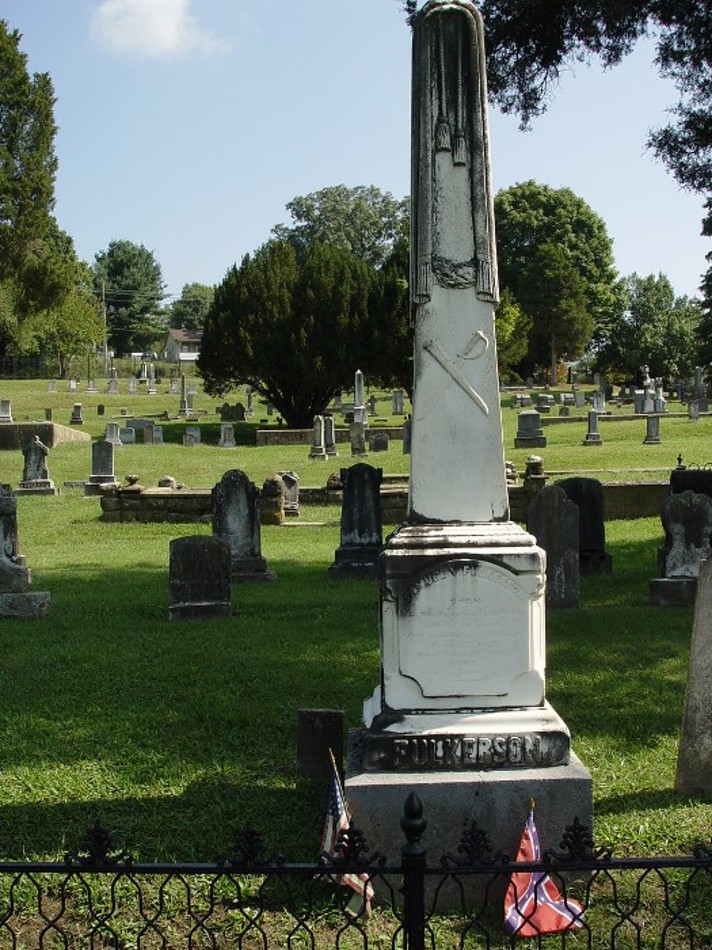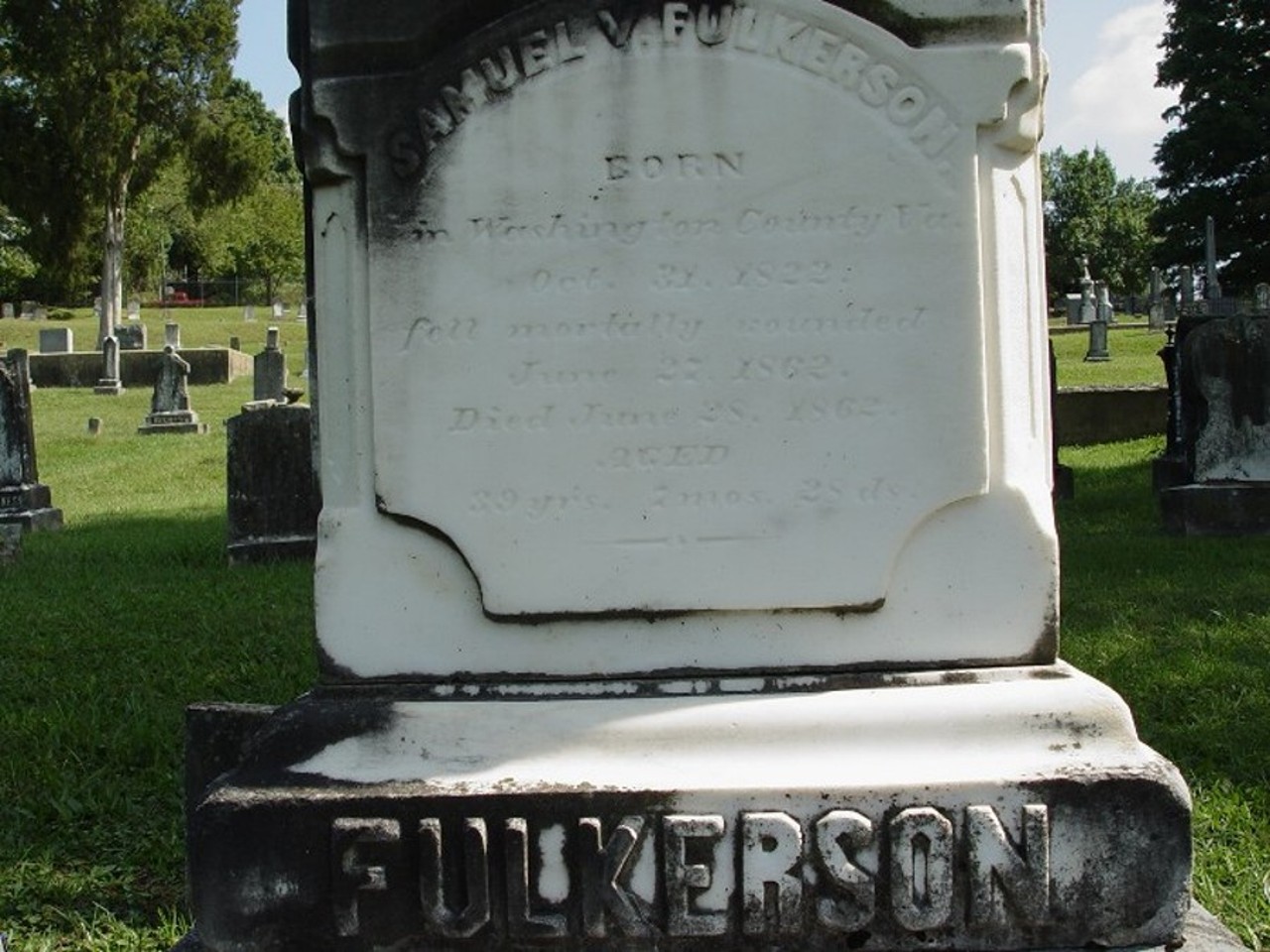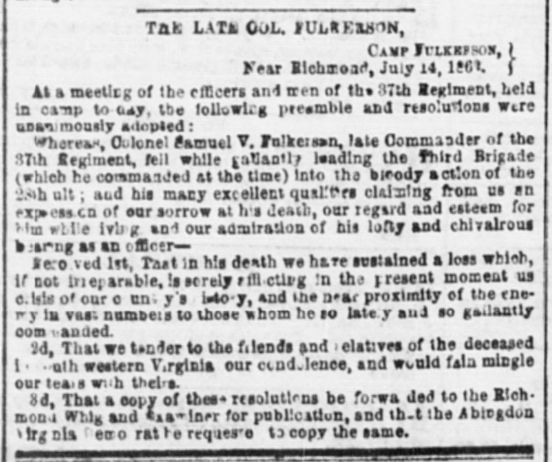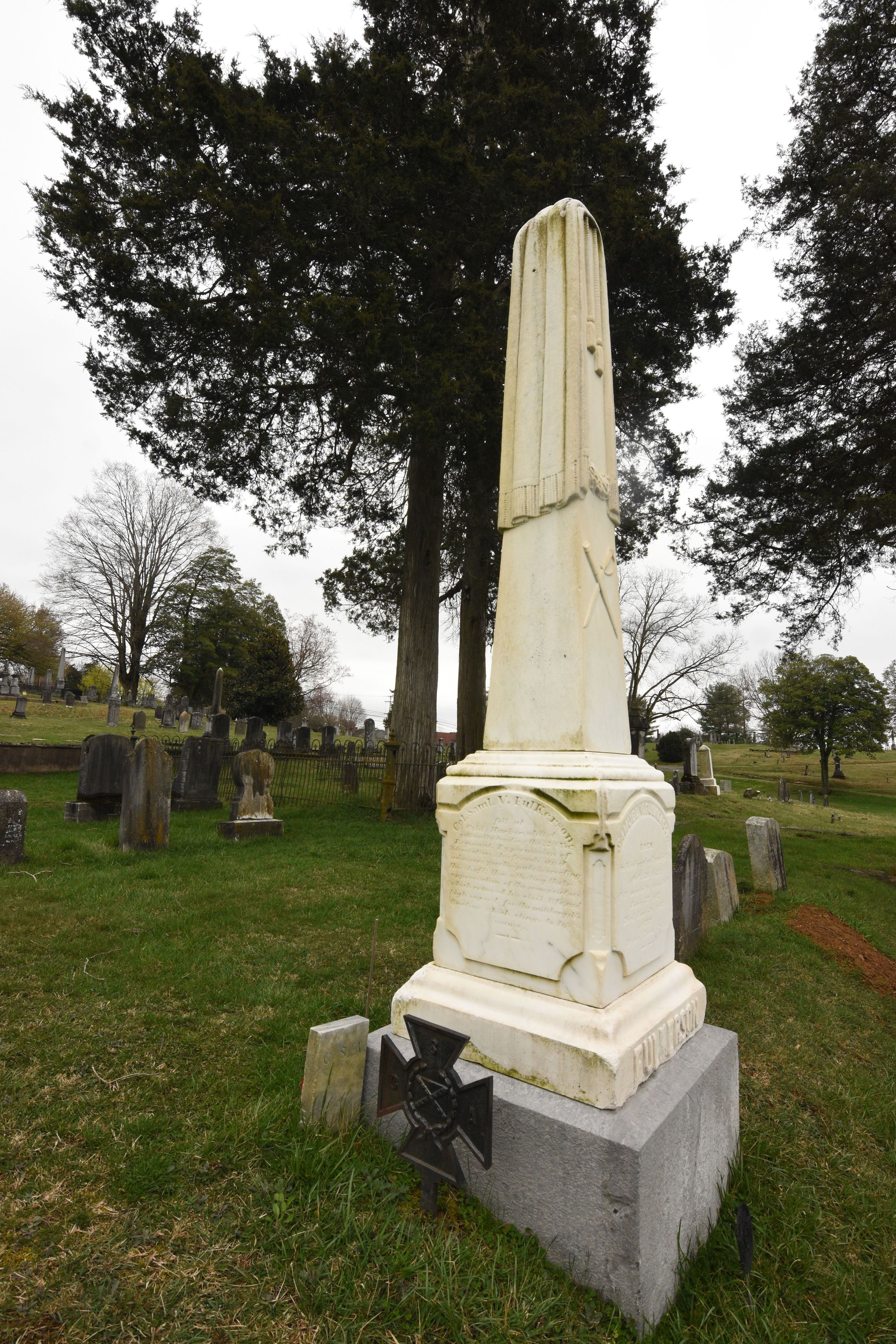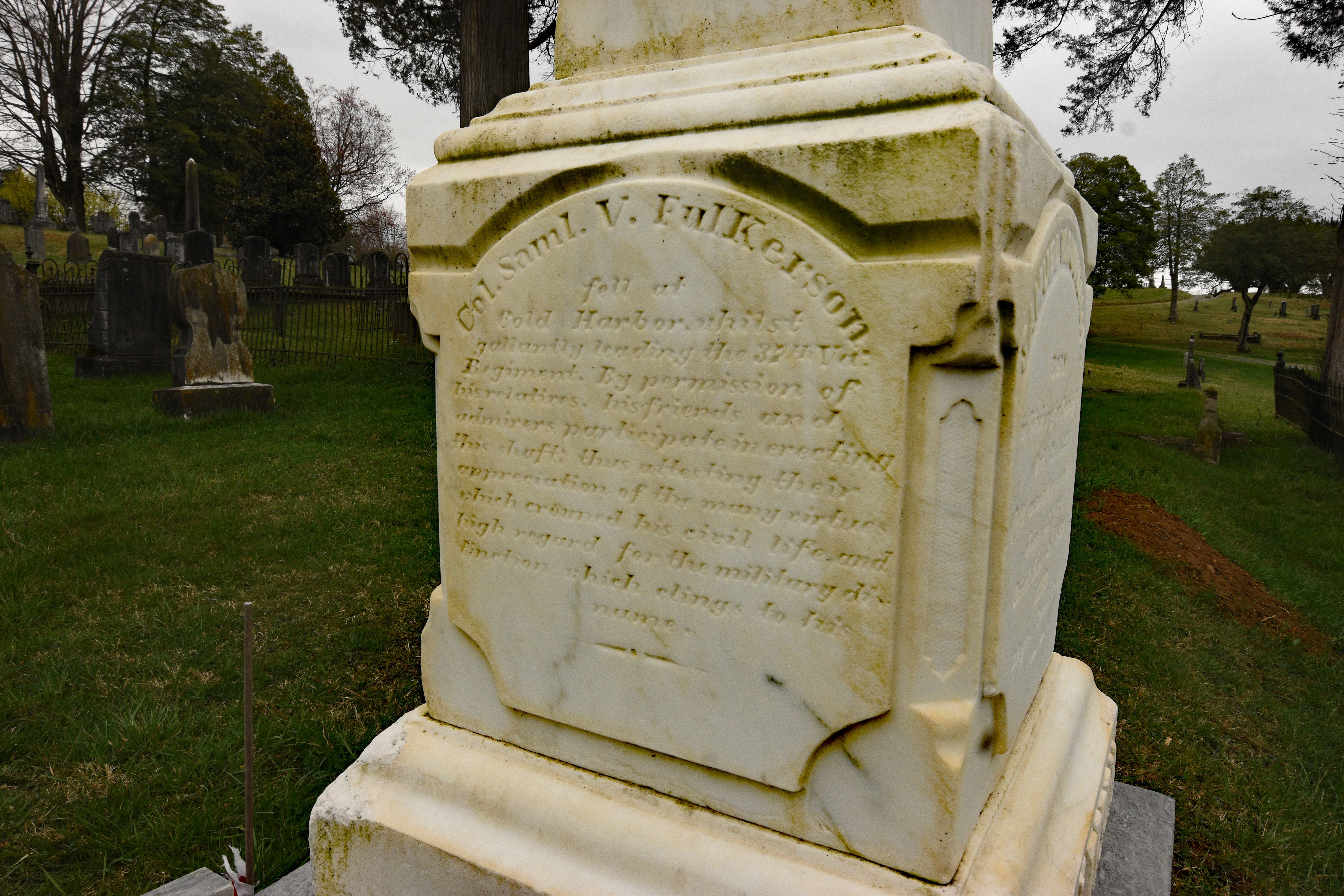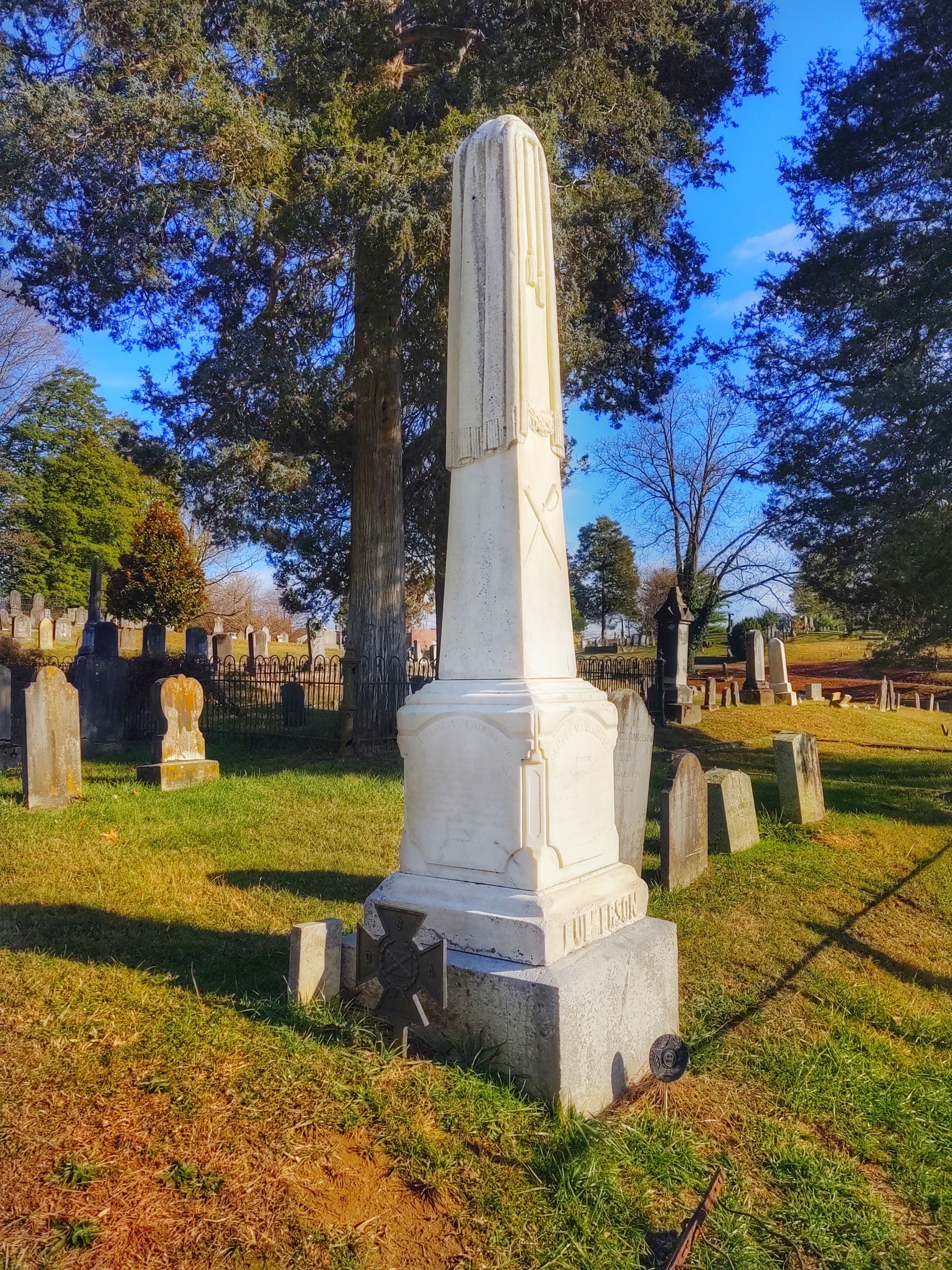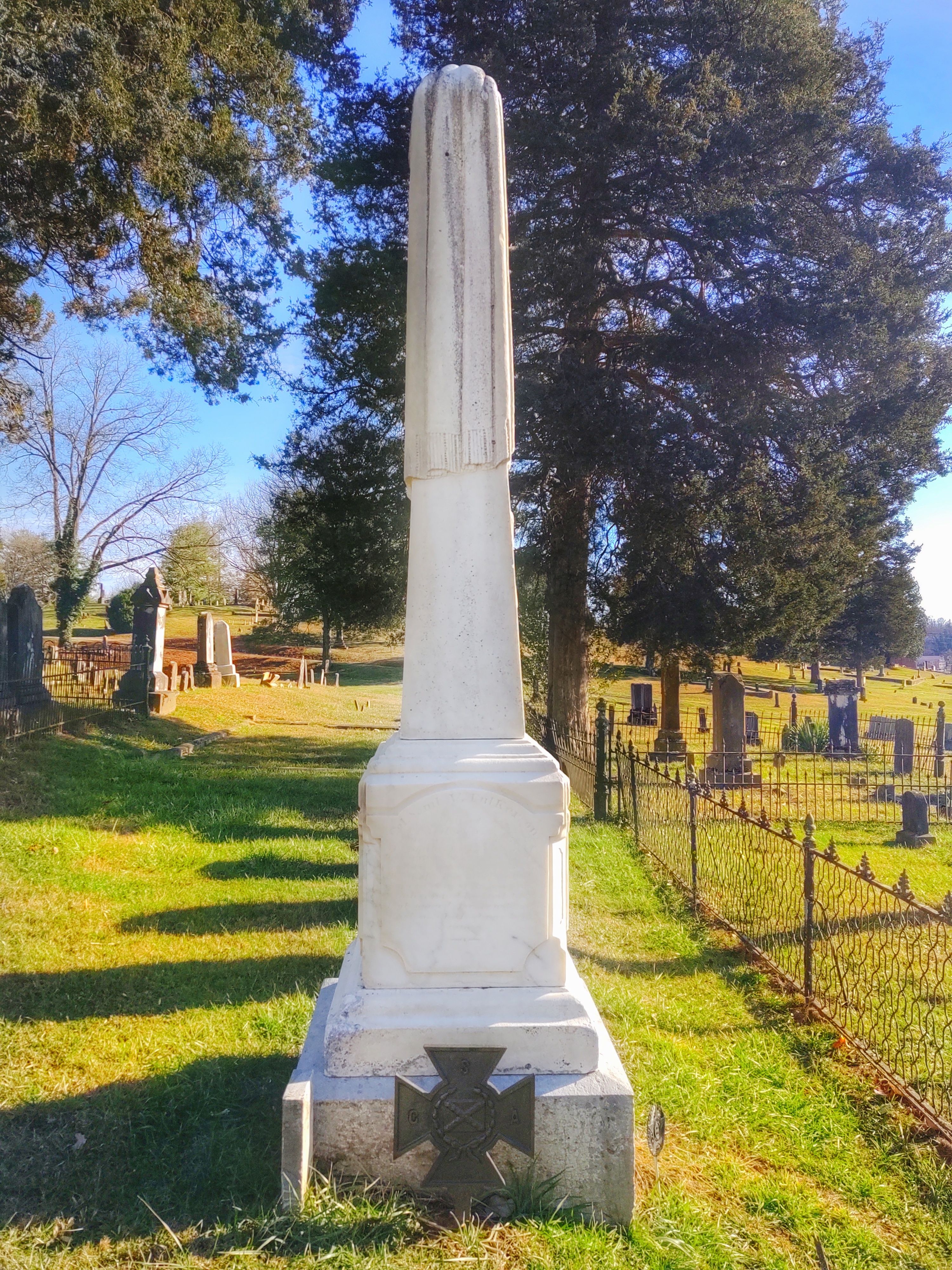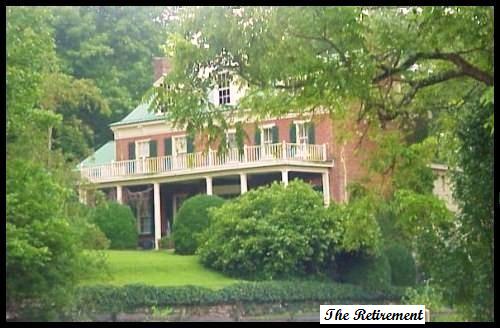He and two brothers volunteered for duty with the US Army during the Mexican-American War of 1846-47. He served as an officer in a Tennessee regiment.
After the war, Samuel V. Fulkerson returned home to become a lawyer and judge of the Circuit Court.
Upon the outbreak of the Civil War he returned to military service on the Confederate side, to defend Virginia against the army in which he once served. He was appointed colonel of the 37th Virginia Infantry Regiment on May 28, 1861 at Richmond, Virginia.
From April 1st to June, 13th, 1861, the Confederate armory at Richmond issued "15,000 Musket Cartridges" and Caps and "490 Cartridge Boxes and Belts" to "Colonel S.V. FULKERSON". According to Captain James H. Wood's memoirs. His regiment drilled there for two weeks before being sent off to the front.
During the Battle of McDowell, Virginia, one of Stonewall Jackson's efforts to harass the Union Army in the Shenandoah region, the Confederates lost about 100 men with 200 wounded. Sam Fulkerson reported the battle a little over a month before he was mortally wounded:
"... the enemy were endeavoring to turn our right flank by passing over a brushy and thickly wooded ridge ... the 31st Va Vols were there to prevent the flank movement & [Brig. Genl. Taliaferro] ordered me to support the 31st. I at once filed into the woods, but not knowing the position of either the 31st or of the enemy, for they were not at that time firing, I got in between the two, but nearer the enemy.
On halting to put my men in line, I found that I had with me only my two front companies ... As soon as I formed the two companies I ordered them to give a shout which they did with a hearty good will, and we charged down the hill directly at the enemy, and when we got within forty or fifty yards of him he broke and fled, when we instantly opened fire upon them as they ran. He did not stop running till he got entirely out of the woods around the hill.
When the remainder of the Regt. reached the line of battle in the field they joined in the fight there ... [Before long,] the woods were clear of the enemy, and I marched all back to the main fight in the field.
When I got on our line it was nearly dark and we could only see the outline of the enemy on the hill side below us, & that soon disappeared, when we could only direct our fire by the flash of the enemy's guns. The fight was kept up till 9 at night when the enemy withdrew, leaving us in full possession of the field. During the fight some of my men were out of ammunition, but I had them to supply themselves from the boxes of the dead and wounded.
I have to report the loss of some good officers and brave men....These Lieuts were young officers, but they nobly did their duty. All of my officers and men who went upon the field acted in the most gallant manner, and it would be unjust to discriminate by name...The loss of my Regt. is thirty nine killed and wounded and one missing ...
Respectfully
Saml. V. Fulkerson
Col. 37 Va. Vols
Fulkerson was wounded at the Battle of Gaines Mill on June 27, 1862. It was Robert E. Lee's first major victory. However, in one day his army of 56,000 men suffered nearly 9,000 casualties. The Union Army lost more than 6,800 men. S. V. Fulkerson's 3rd Brigade had 15 wounded, 1 missing and only two deaths, but one of them was the brigade commander, Colonel Samuel V. Fulkerson. He died the next day on June 28, 1862 of his wounds.
After his death Thomas J. "Stonewall" Jackson wrote: "Col. S. V. Fulkerson was an officer of distinguished worth. I deeply felt his death. He rendered valuable service to his country, and had he lived, would probably have been recommended by me before this time for a brigadier generalcy. So far as my knowledge extends, he enjoyed the confidence of his regiment and all who knew him.
I am Sir your obdt. servt T.J. Jackson"
He and two brothers volunteered for duty with the US Army during the Mexican-American War of 1846-47. He served as an officer in a Tennessee regiment.
After the war, Samuel V. Fulkerson returned home to become a lawyer and judge of the Circuit Court.
Upon the outbreak of the Civil War he returned to military service on the Confederate side, to defend Virginia against the army in which he once served. He was appointed colonel of the 37th Virginia Infantry Regiment on May 28, 1861 at Richmond, Virginia.
From April 1st to June, 13th, 1861, the Confederate armory at Richmond issued "15,000 Musket Cartridges" and Caps and "490 Cartridge Boxes and Belts" to "Colonel S.V. FULKERSON". According to Captain James H. Wood's memoirs. His regiment drilled there for two weeks before being sent off to the front.
During the Battle of McDowell, Virginia, one of Stonewall Jackson's efforts to harass the Union Army in the Shenandoah region, the Confederates lost about 100 men with 200 wounded. Sam Fulkerson reported the battle a little over a month before he was mortally wounded:
"... the enemy were endeavoring to turn our right flank by passing over a brushy and thickly wooded ridge ... the 31st Va Vols were there to prevent the flank movement & [Brig. Genl. Taliaferro] ordered me to support the 31st. I at once filed into the woods, but not knowing the position of either the 31st or of the enemy, for they were not at that time firing, I got in between the two, but nearer the enemy.
On halting to put my men in line, I found that I had with me only my two front companies ... As soon as I formed the two companies I ordered them to give a shout which they did with a hearty good will, and we charged down the hill directly at the enemy, and when we got within forty or fifty yards of him he broke and fled, when we instantly opened fire upon them as they ran. He did not stop running till he got entirely out of the woods around the hill.
When the remainder of the Regt. reached the line of battle in the field they joined in the fight there ... [Before long,] the woods were clear of the enemy, and I marched all back to the main fight in the field.
When I got on our line it was nearly dark and we could only see the outline of the enemy on the hill side below us, & that soon disappeared, when we could only direct our fire by the flash of the enemy's guns. The fight was kept up till 9 at night when the enemy withdrew, leaving us in full possession of the field. During the fight some of my men were out of ammunition, but I had them to supply themselves from the boxes of the dead and wounded.
I have to report the loss of some good officers and brave men....These Lieuts were young officers, but they nobly did their duty. All of my officers and men who went upon the field acted in the most gallant manner, and it would be unjust to discriminate by name...The loss of my Regt. is thirty nine killed and wounded and one missing ...
Respectfully
Saml. V. Fulkerson
Col. 37 Va. Vols
Fulkerson was wounded at the Battle of Gaines Mill on June 27, 1862. It was Robert E. Lee's first major victory. However, in one day his army of 56,000 men suffered nearly 9,000 casualties. The Union Army lost more than 6,800 men. S. V. Fulkerson's 3rd Brigade had 15 wounded, 1 missing and only two deaths, but one of them was the brigade commander, Colonel Samuel V. Fulkerson. He died the next day on June 28, 1862 of his wounds.
After his death Thomas J. "Stonewall" Jackson wrote: "Col. S. V. Fulkerson was an officer of distinguished worth. I deeply felt his death. He rendered valuable service to his country, and had he lived, would probably have been recommended by me before this time for a brigadier generalcy. So far as my knowledge extends, he enjoyed the confidence of his regiment and all who knew him.
I am Sir your obdt. servt T.J. Jackson"
Family Members
Advertisement
Advertisement
